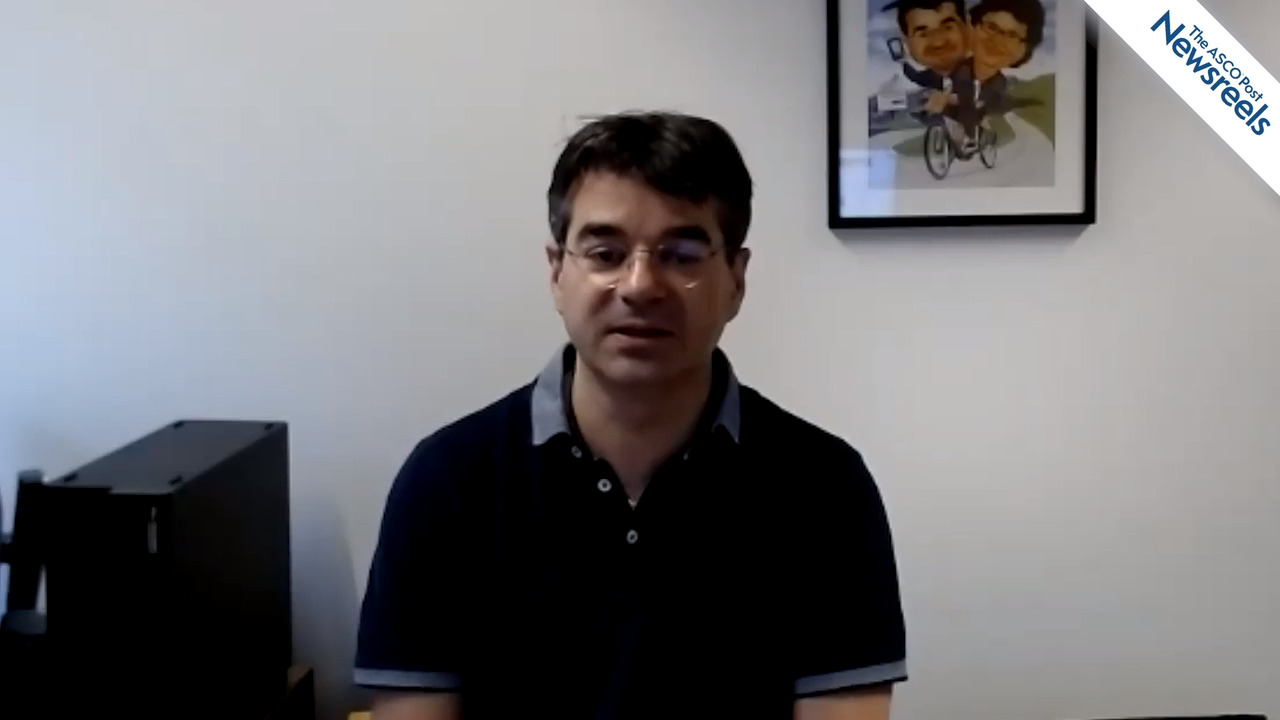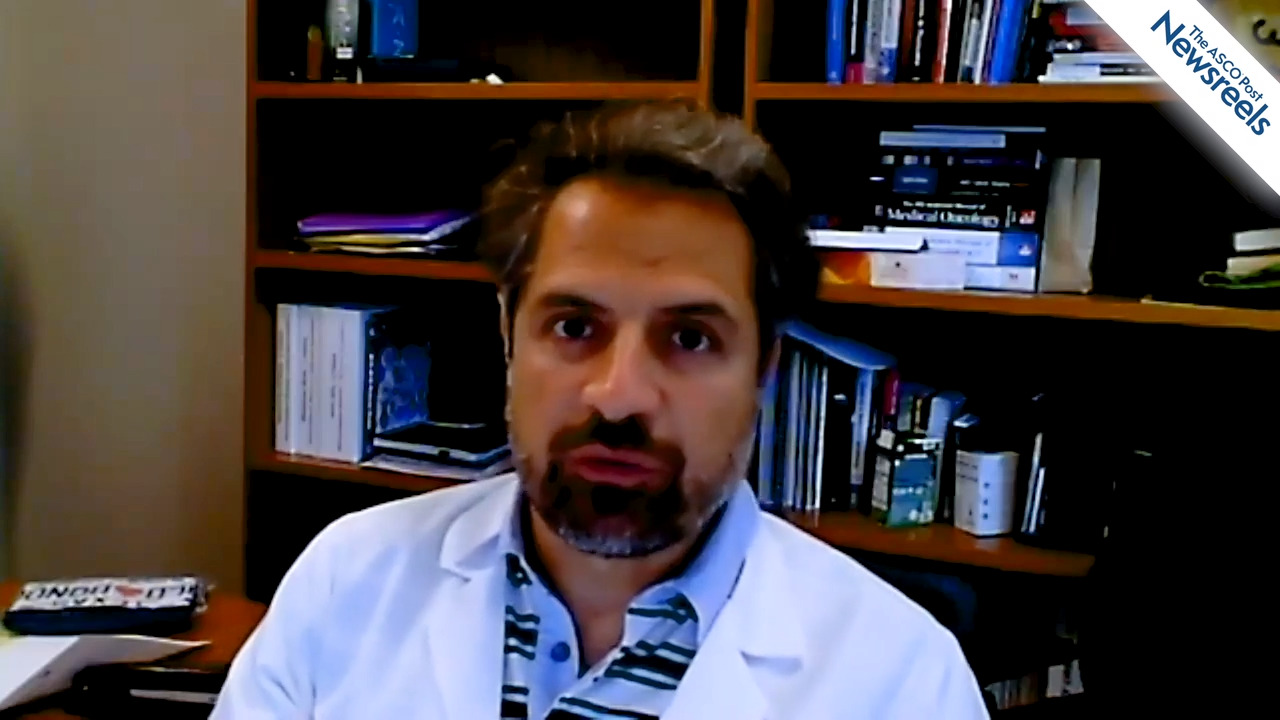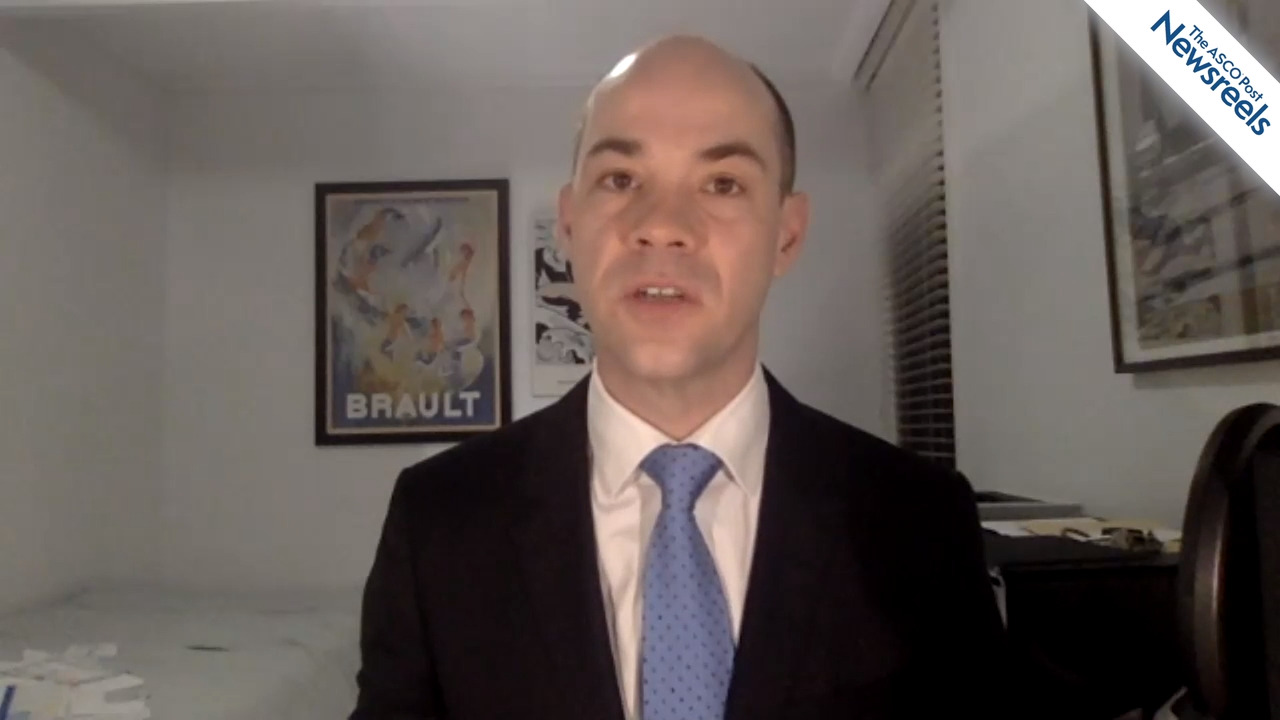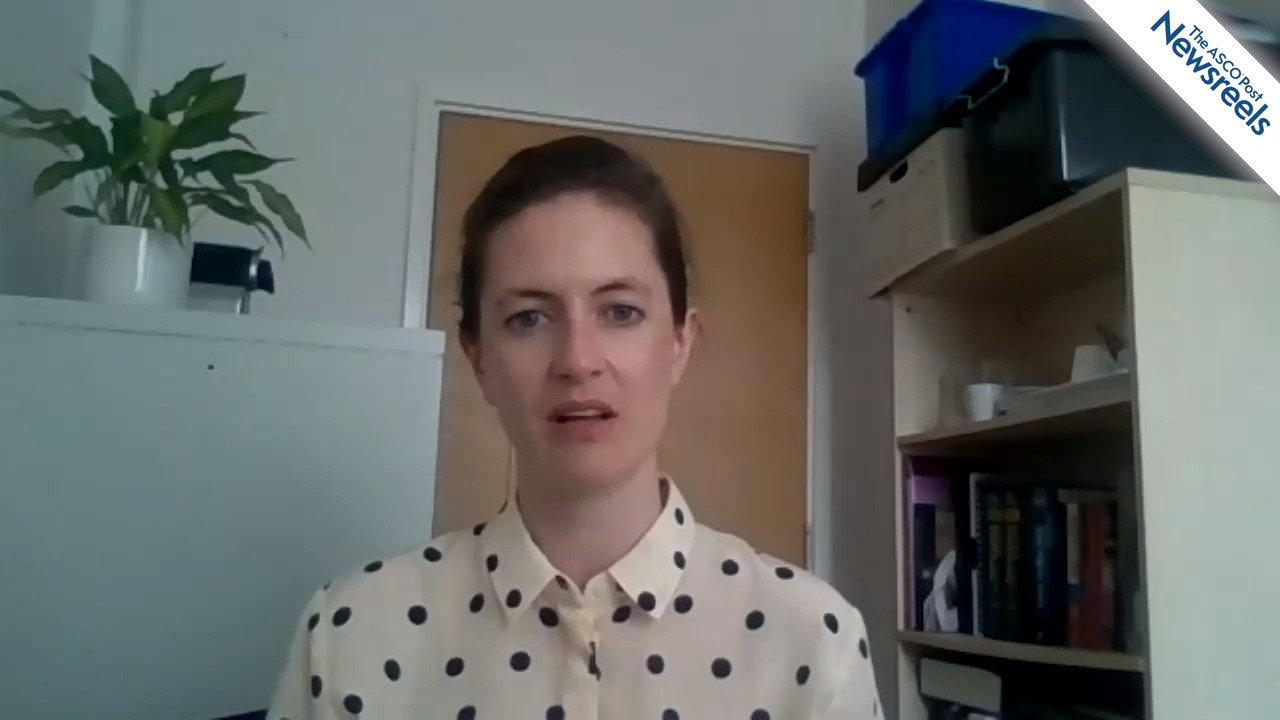Andrew H. Wei, MBBS, PhD, on AML: Venetoclax Plus Cytarabine in Older Patients
EHA25 Virtual
Andrew H. Wei, MBBS, PhD, of The Alfred Hospital, Monash University, discusses phase III data from the VIALE-C trial, which appear to support the use of venetoclax plus low-dose cytarabine as a front-line treatment for older patients with acute myeloid leukemia, as well as for those who cannot tolerate intensive chemotherapy (Abstract S136).
The ASCO Post Staff
Arnon P. Kater, MD, PhD, of the University of Amsterdam, Cancer Center Amsterdam, discusses phase IIIb results from the VENICE I trial, which confirmed that venetoclax monotherapy can achieve deep responses and has a tolerable and manageable safety profile in patients with relapsed or refractory chronic lymphocytic leukemia (Abstract S156).
The ASCO Post Staff
Elias Jabbour, MD, of The University of Texas MD Anderson Cancer Center, discusses study findings that showed venetoclax and navitoclax with chemotherapy is well tolerated, with promising efficacy in heavily pretreated patients with relapsed or refractory acute lymphoblastic leukemia and lymphoblastic lymphoma. Clinical follow-up, correlative biomarker analysis, and expansion cohort enrollment to assess discontinuous dosing are underway (Abstract S116).
The ASCO Post Staff
Michael J. Dickinson, MBBS, DMedSc, of the Peter MacCallum Cancer Centre, discusses phase I dose-escalation study results on CD20-TCB, which showed activity, including durable complete responses, and manageable safety in heavily pretreated patients with relapsed or refractory non-Hodgkin lymphoma (Abstract S241).
The ASCO Post Staff
John C. Byrd, MD, of The Ohio State University Comprehensive Cancer Center, discusses the mature results of a phase II study showing durable remissions and long-term tolerability of acalabrutinib in treatment-naive patients with relapsed or refractory chronic lymphocytic leukemia or small lymphocytic lymphoma (Abstract S163).
The ASCO Post Staff
Elizabeth H. Phillips, MD, of the University of Manchester and The Christie Hospital, discusses phase II findings showing inotuzumab ozogamicin plus rituximab, cyclophosphamide, vincristine, and prednisolone is a feasible and effective regimen for front-line treatment of high-risk patients with diffuse large B-cell lymphoma who are not eligible for standard chemotherapy (Abstract S232).





